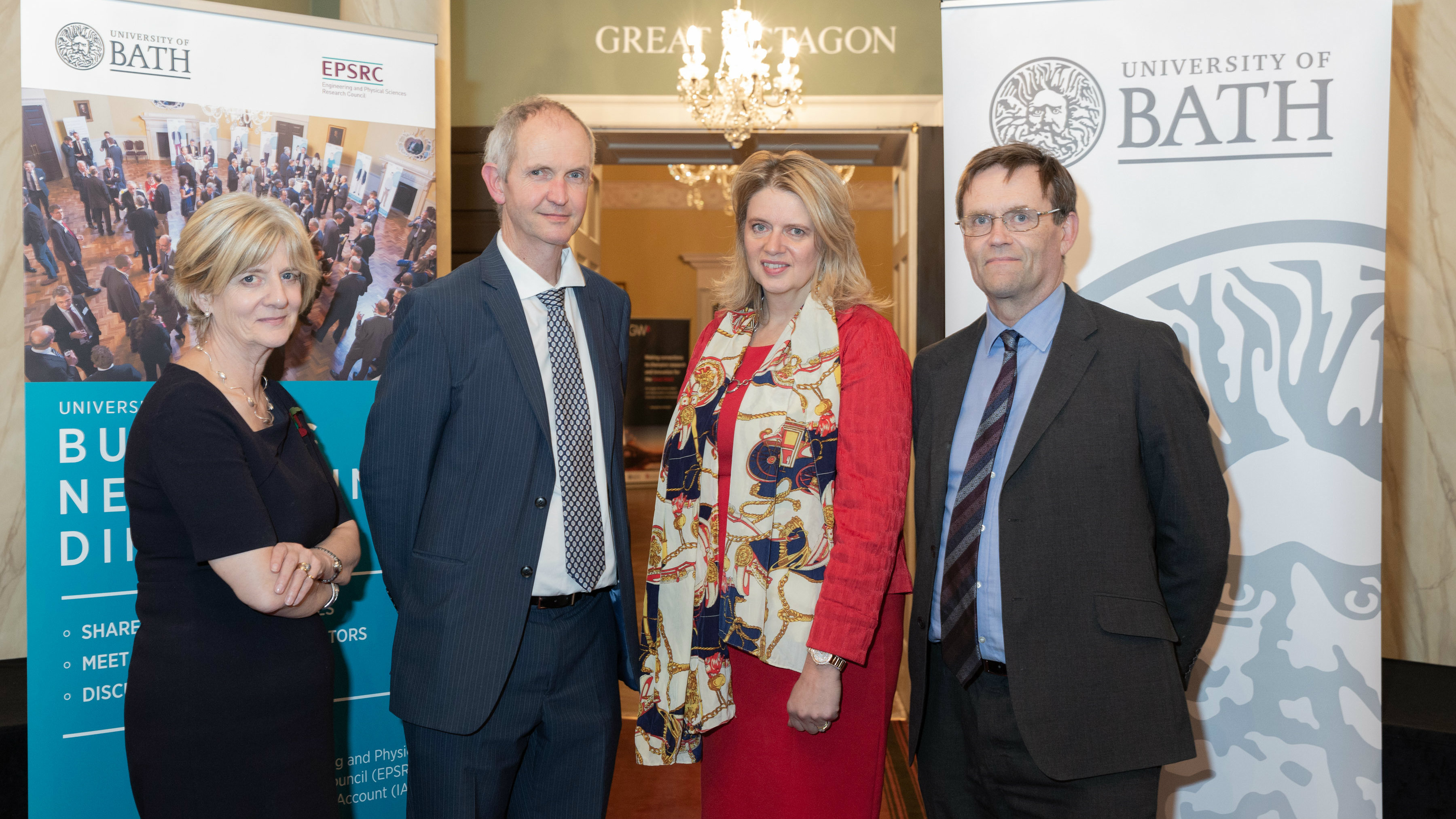The University of Bath is calling on businesses to get in touch to discuss how its world-leading academics and scientists can collaborate on research partnerships and strategic investments.
The University of Bath highlighted the business benefits it brings to the region with an event this week showcasing the impact of its research to solve real-world problems, including plastic pollution and environmental degradation.
The annual dinner took place on 1 November at The Assembly Rooms, Bath, where 120 guests including senior members of the University, academics and representatives from industry and local government, learned about some of the impact research collaboration is bringing about.
Highlighted examples included a project between Professor Janet L. Scott, Department of Chemistry, and Professor Davide Mattia, Department of Chemical Engineering, with a UK speciality chemicals company, on ‘biobeads’. They are working together to address an urgent need to replace plastic microbeads in a wide range of products, from cosmetics to abrasives. Their environmentally acceptable and biodegradable alternative responds to the legislated ban in the US and planned UK ban from 2019.
Other high impact research includes a project to develop next generation software for 3D printing technologies.
A team of researchers from the Department of Mechanical Engineering, led by Dr Vimal Dhokia, and working with in collaboration with a leading global aerospace company based in the south-west and a high-growth SME in 3D manufacturing, hope the technology will deliver parts optimised in terms of material required, strength and the ability to be manufactured first time without the need for expensive prototype iterations.
This innovative technology has the potential to be world-leading and revolutionary in terms of 3D printing, also called additive manufacturing, and its application to mainstream productivity processes.
Katherine Bennett, Senior Vice President of Airbus, provided the after-dinner speech. She emphasised the successful impact which can be generated from research partnerships.
Funded by the Engineering and Physical Sciences Research Council’s Impact Acceleration Account (IAA), the dinner helps deepen the University’s relationship with long-term collaborators whilst also laying pathways to new collaborations and investments.
Professor Jonathan Knight, Pro-Vice-Chancellor (Research) explained how achieving real world impact is firmly at the top of every university’s agenda.
Professor Knight said: “The IAA dinner once again highlighted the central role that the University’s actions play in bringing together academic researchers and industrial partners. Bath continues to build a strong track record of achieving results through collaborations with industry. Through the IAA the University has forged collaborative partnerships offering a valuable pathway to delivering impact.
“From engineers and mathematicians to experts in animation, and human-computer interaction, to leaders in business best practice, the University of Bath has much to offer industry. We would love to hear from businesses who are interested in working together to solve problems and generate real world impact.”
At last year’s dinner, the £60m Institute for Advanced Automotive Propulsion Systems (IAAPS) was announced as a major funding win.
Professor Steve Egan, the IAAPS finance and business lead, spoke at this year’s dinner about how the institute is moving forward. He emphasised the great opportunity IAAPS provides to grow external links at both a regional and global scale, with a range of industrial partners from SMEs to larger corporations. Based at Bristol and Bath Science Park the institute will create additional turnover of £800m for UK automotive sector and support nearly 1,900 new jobs.
Professor Veronica Hope Hailey, University Vice President, Corporate Engagement, said: “Universities have global reach through their scientific and engineering research - the automotive sector in Shanghai already know and are excited about the development of IAAPS. When universities, businesses and government work together in this Golden Triangle, we can drive economic, social and educational development for the people of this region.
The University of Bath networking dinner is project managed and delivered by Research and Innovation Services (RIS). For further information on the EPSRC Impact Acceleration Account contact Alice Hovanessian, Project Coordinator. Email: A.Hovanessian@bath.ac.uk

